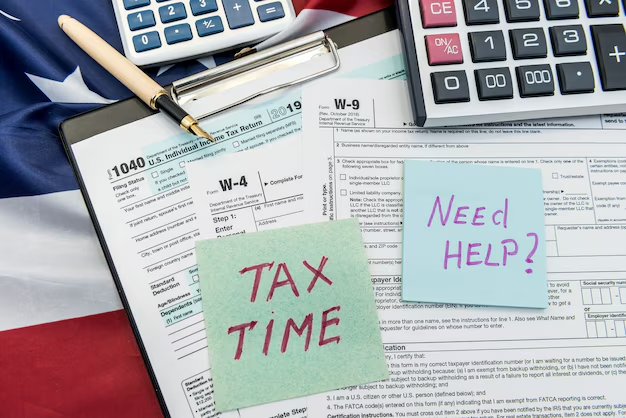Unveiling Alabama’s Tax Landscape: What You Need to Know About State Taxes
As tax season approaches, residents and newcomers alike often find themselves asking: "Does Alabama have state tax?" Understanding the nuances of Alabama's tax system is not only essential for compliance, but also for making informed financial decisions. In this comprehensive guide, we'll explore the ins and outs of Alabama's state taxes, painting a clear picture of what you can expect whether you're an individual taxpayer or a business owner.
Understanding Alabama's State Tax System
Is There a State Income Tax in Alabama?
Yes, Alabama does levy a state income tax on its residents. Understanding how this works is crucial for every taxpayer in the state.
Individual Income Tax Rates: Alabama's income tax rates are progressive, meaning they vary based on income. The rates currently range from 2% to 5%. This applies to both single filers and married couples filing jointly, although the income brackets differ slightly.
Filing Requirements: Residents, non-residents, and part-year residents who earn income from Alabama sources must file an Alabama tax return if they meet specific income thresholds.
Progressive Tax Rates: A Closer Look
Alabama's progressive tax system is designed to impose higher rates on those with higher incomes, distributing the tax burden more equitably. Here's a quick breakdown of the tax rates and brackets for individuals:
- 2% on the first $500 of taxable income for single filers and the first $1,000 for married couples filing jointly.
- 4% on taxable income between $501 and $3,000 for singles and $1,001 to $6,000 for joint filers.
- 5% on income over $3,000 for singles and over $6,000 for joint filers.
What About Sales Tax?
Apart from income tax, Alabama also has a significant sales tax that affects both residents and visitors. Understanding this aspect is key to comprehending the full tax picture of the state.
Base Rate: Alabama has a base sales tax rate of 4%. However, when combined with local taxes, the total can range significantly depending on the city or county.
Local Variations: Local cities and counties can impose additional rates, often resulting in combined rates from 7% up to 11% in some areas. It's crucial to be aware of these local variations, especially for businesses.
Items Subject to Sales Tax: Most tangible goods are subject to sales tax; however, certain groceries and prescription medications may be exempt.
Property Taxes in Alabama
Property taxes often generate interest among homeowners and potential buyers. In Alabama, these taxes are relatively low compared to national averages.
Low Rates: Alabama boasts some of the lowest property tax rates in the nation, which makes owning property in the state more affordable. This has a significant impact on the cost of living and can be a draw for potential residents.
Assessment Rates: Properties are assessed at different rates depending on their classification. For residential properties, the assessment is typically 10% of the market value.
How Property Taxes Are Calculated
Alabama calculates property tax using the assessed value of a property and the tax rate set by local governments. Here's a simplified formula:
[ ext{Property Tax} = ext{Assessed Value} imes ext{Tax Rate} ]
This straightforward calculation makes it easy for property owners to estimate their taxes.
Nuances of Business Taxes in Alabama
Corporate Income Tax
If you operate a business in Alabama, understanding corporate income tax is crucial.
Rate: The state has a corporate income tax rate of 6.5%, a critical consideration for any business owner managing financial forecasts.
Filing Necessities: All businesses operating in Alabama, whether incorporated or not, must file a corporate income tax return.
Business Privilege Tax
Apart from corporate income tax, businesses are also subject to a business privilege tax, calculated based on the net worth of the business.
Calculation: The tax rate ranges from $0.25 to $1.75 per thousand dollars of net worth, with a minimum tax of $100 annually.
Who Needs to File: Nearly all business entities including corporations, limited liability companies, and partnerships are required to file a business privilege tax return.
Practical Tips and Insights: Navigating Alabama Taxes
Navigating the tax landscape can be daunting, but these practical tips can help smooth the process:
Key Takeaways for Individual Taxpayers
Understand Brackets: Knowing your income bracket helps in planning and understanding your liability.
Local Sales Taxes: Be conscious of local sales tax rates when budgeting for major purchases.
Property Tax Savings: Leverage Alabama’s lower property tax rate when considering property investments.
Essential Tips for Business Owners
Corporate Tax Planning: Integrate corporate tax rates into your financial planning to anticipate tax liabilities.
Net Worth Assessment: Regularly evaluate your business's net worth to better predict license taxes.
Local Compliance: Stay informed on local tax rate changes which can affect your overall tax responsibility.
Alabama Tax Summary
Here's a quick recap of crucial tips and insights for both individuals and businesses in Alabama:
- 📊 Income Tax Rates: Progressive from 2% to 5%.
- 🛒 Sales Tax Dynamic: Base rate of 4%, but local rates can elevate total significantly.
- 🏡 Property Taxes: Among the lowest in the U.S., making real estate more affordable.
- 💼 Corporate and Business Taxes: Key for business financial planning.
Understanding Alabama's tax system paves the way for smart financial strategies, whether you’re a resident or a business proprietor. By aligning your financial practices with this knowledge, you can maximize your tax efficiency and navigate the landscape with confidence. Embrace this comprehensive awareness, and let it guide your next financial move effortlessly in the Heart of Dixie.

Related Topics
- Am I Tax Exempt
- Are 401k Contributions Tax Deductible
- Are 529 Plan Contributions Tax Deductible
- Are Attorney Fees Tax Deductible
- Are Campaign Contributions Tax Deductible
- Are Charitable Donations Tax Deductible
- Are Church Donations Tax Deductible
- Are Churches Tax Exempt
- Are Closing Costs Tax Deductible
- Are Contributions To 529 Plans Tax Deductible
